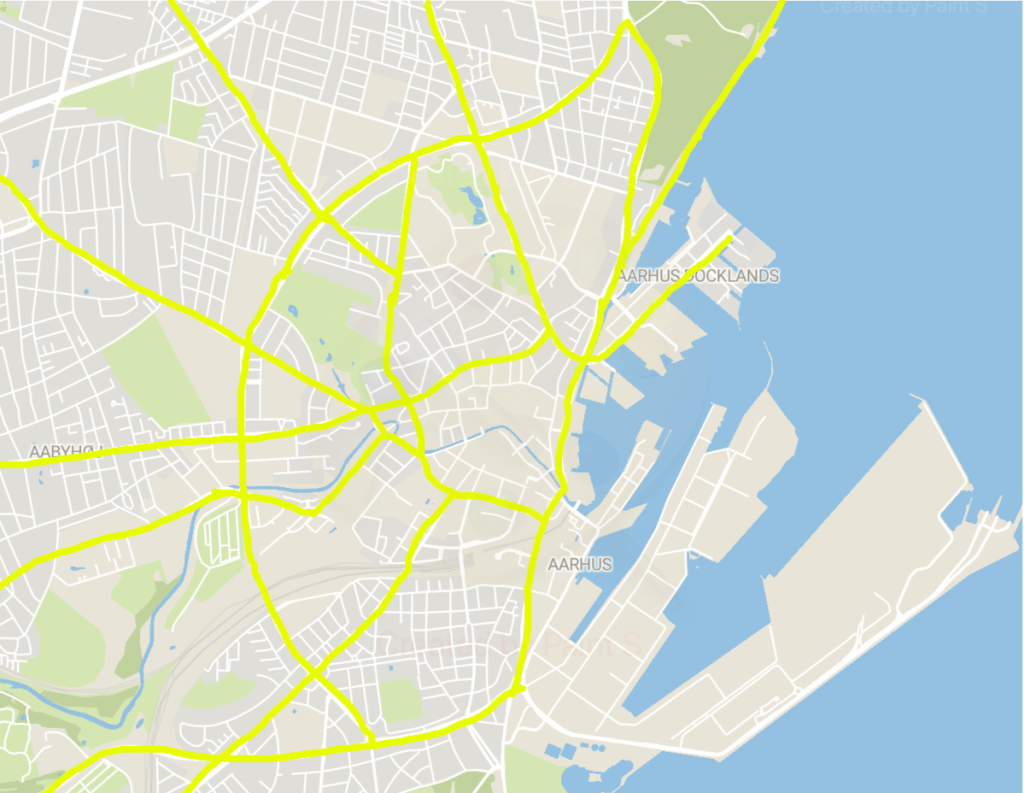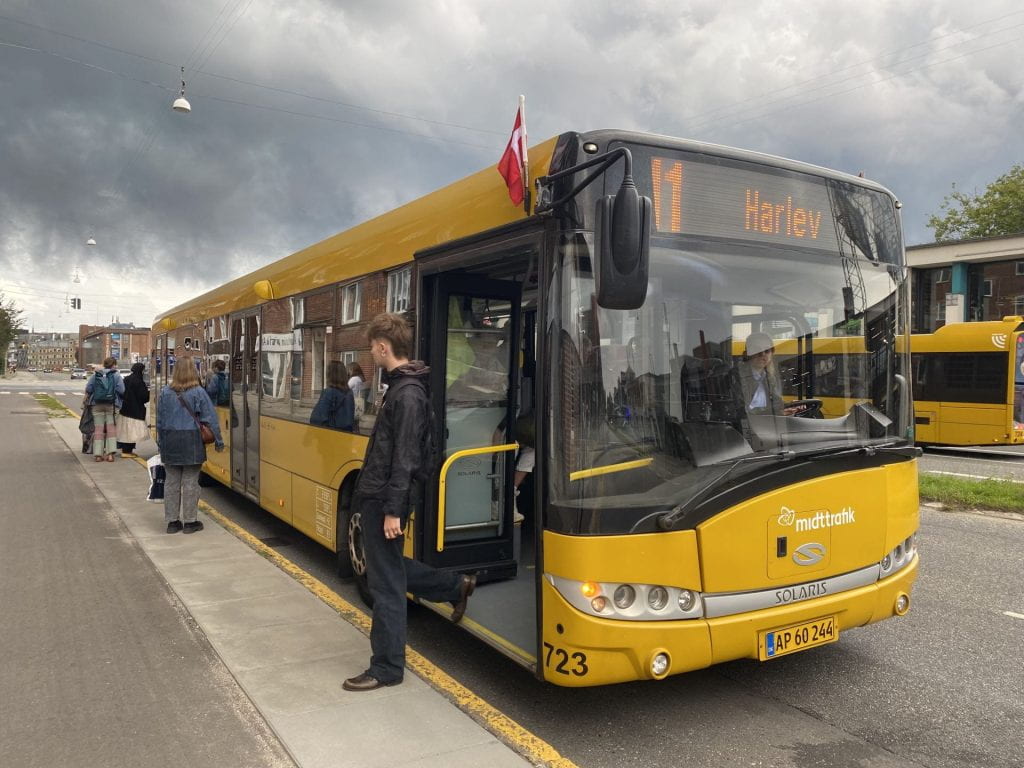On Sunday, the 27th of October, Aarhus municipality offered free buses and trams. Experts say that permanent free public transportation would not be a good solution to the environment or the economy.
By: Hanna Urfjell Pedersen and Bente van Diepen
As a part of the concept of car free Sunday in the city of Aarhus, the municipality decided that they would try out offering free yellow buses and trams as a trial project. This was well received from the public.
“I think it is a great idea,” says one of the people who took the bus on Sunday, Christine.
She usually rides her bike when roaming the city, but on Sunday she had some errands on the other side of town. Because of this, she had to take the bus and it was a nice surprise to her that they were free.
“I like the fresh air from biking, but I would take the bus more often if it was free,” Christine says.
Another passenger on the bus on Sunday, Ole Perry, was also excited about the free transit service.
“I think free transportation is good for both the people who don’t have a lot of money and also for those people who would like to not have a car,” Perry says.
He regularly takes the bus and thinks it should be free on a daily basis in the same way that hospitals are free.
Does not solve air pollution
The project leader in the technical and environmental department in Aarhus, Sara Cox, is somewhat critical to the free buses.
“I think it is a great idea for people to try different methods of moving around in Aarhus,” Cox says.
However, since it was only the local yellow buses that were free, and not regional blue buses, cox thinks that the effect of the free buses was not a good impact on the environment. She thinks that people took the bus instead of walking or biking.
“It needs to be a bigger study than just within Aarhus in a few streets, to reach more people than just the locals. I think it would make more sense to reach out to the small villages surrounding Aarhus,” Cox says.
She adds that it is a good thing that Aarhus is getting more electrical buses, but that they´re still not environmental-friendly. This is because the tires on the buses produces particle pollution when driving and people inhale these particles.

The lines indicate some of the main routes that were free on Sunday the 27th.
An expensive implementation
The head of the mobility department in Aarhus municipality, Morten Skou Nicolaisen, says that the free transit service on Sunday should be seen as a promotional effort for the services rather than a test case for large case implementation of free transit service.
“Free transit service has been analyzed several times and implementing it on a permanent basis is considered to result in an additional expense of roughly DKK 0.5 billion annually,” Skou Nicolaisen adds.
He says that if they were to offer free transit services on a permanent basis, it would require considerable reductions in other public services.
Skou Nikolaisen agrees with Cox that people would choose the bus over walking or biking, and that this creates more problems than solutions. He adds that this would risk overcrowding in the buses, and that they probably would have to need additional buses during peak hours. This would also increase the cost of transit service.
